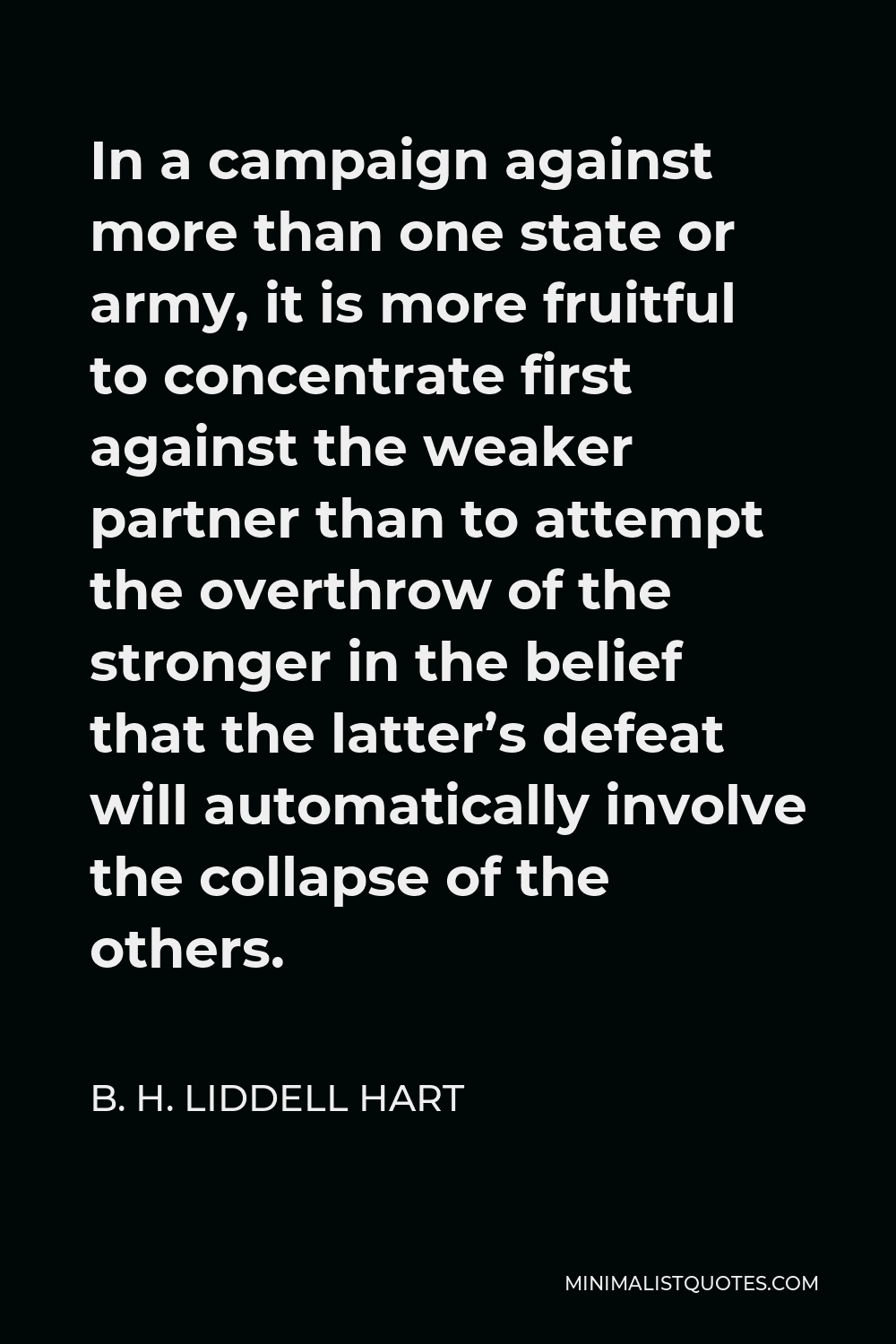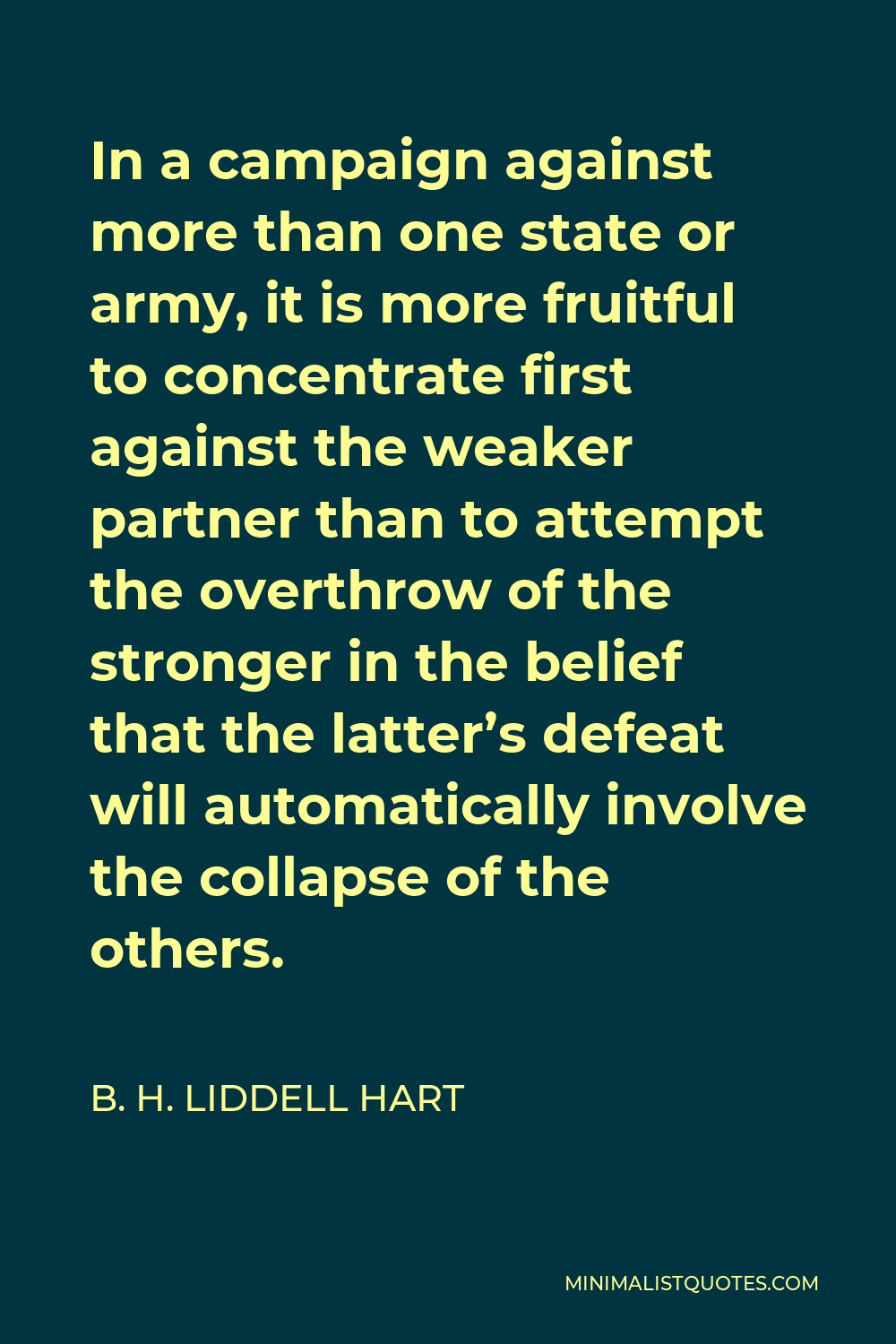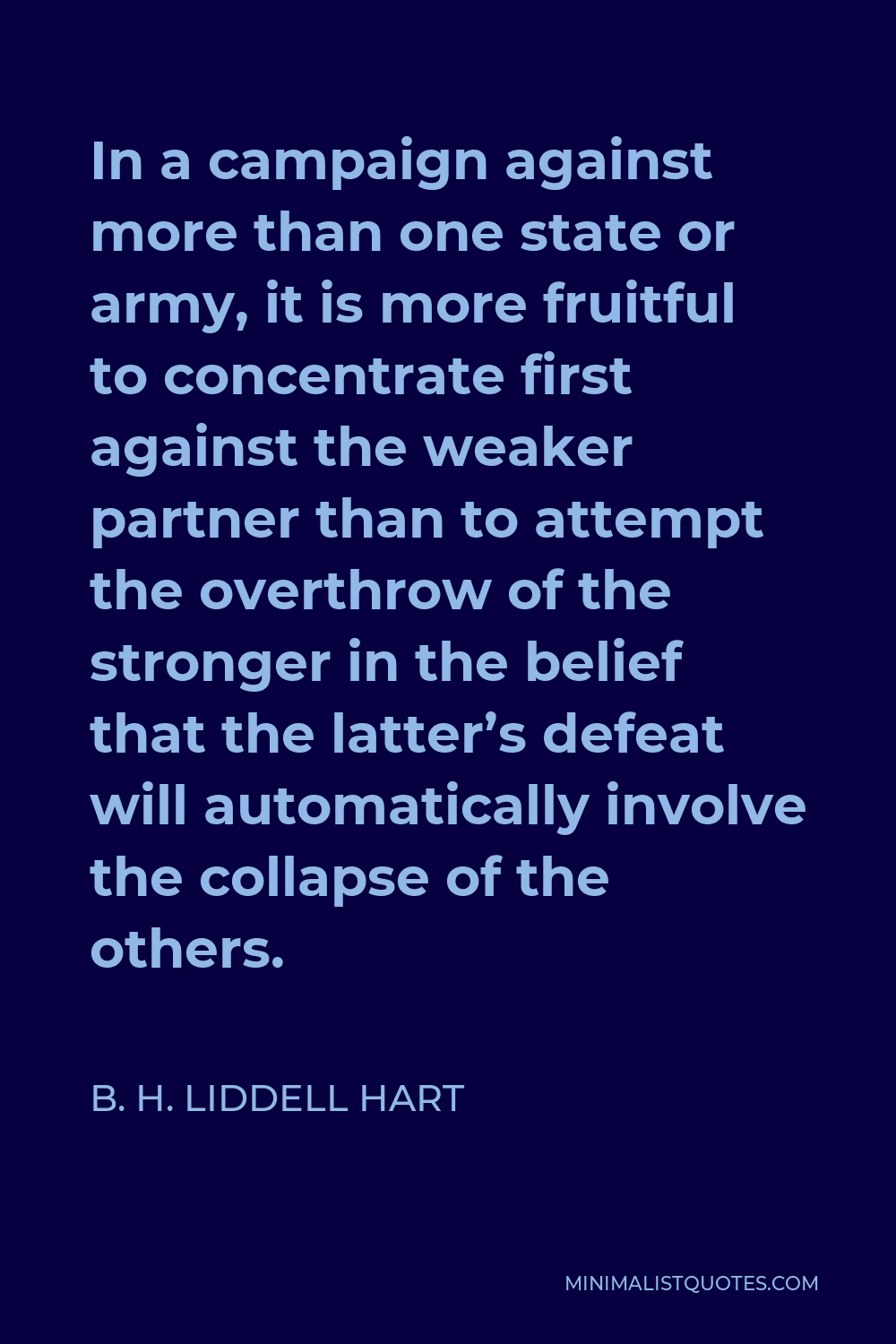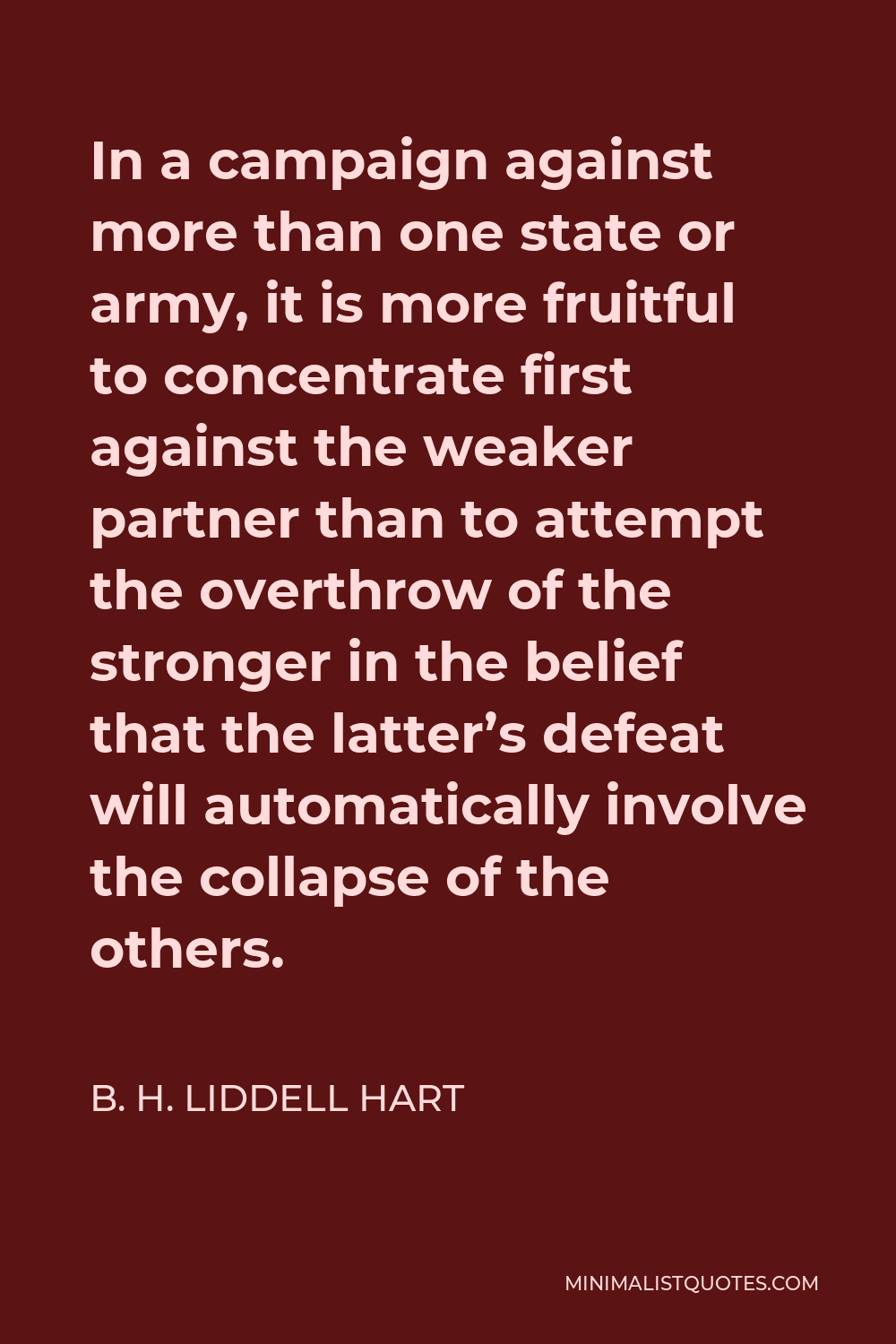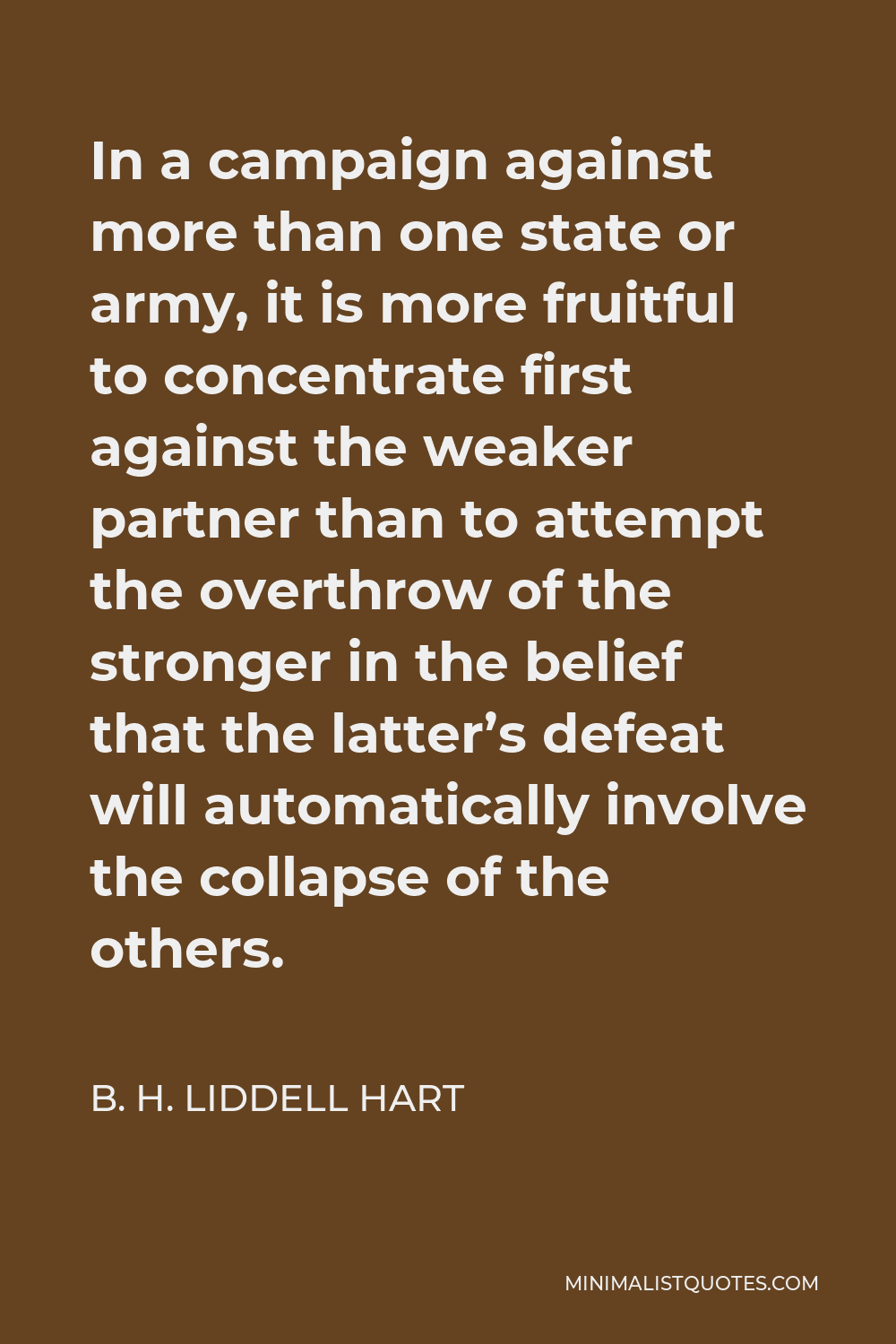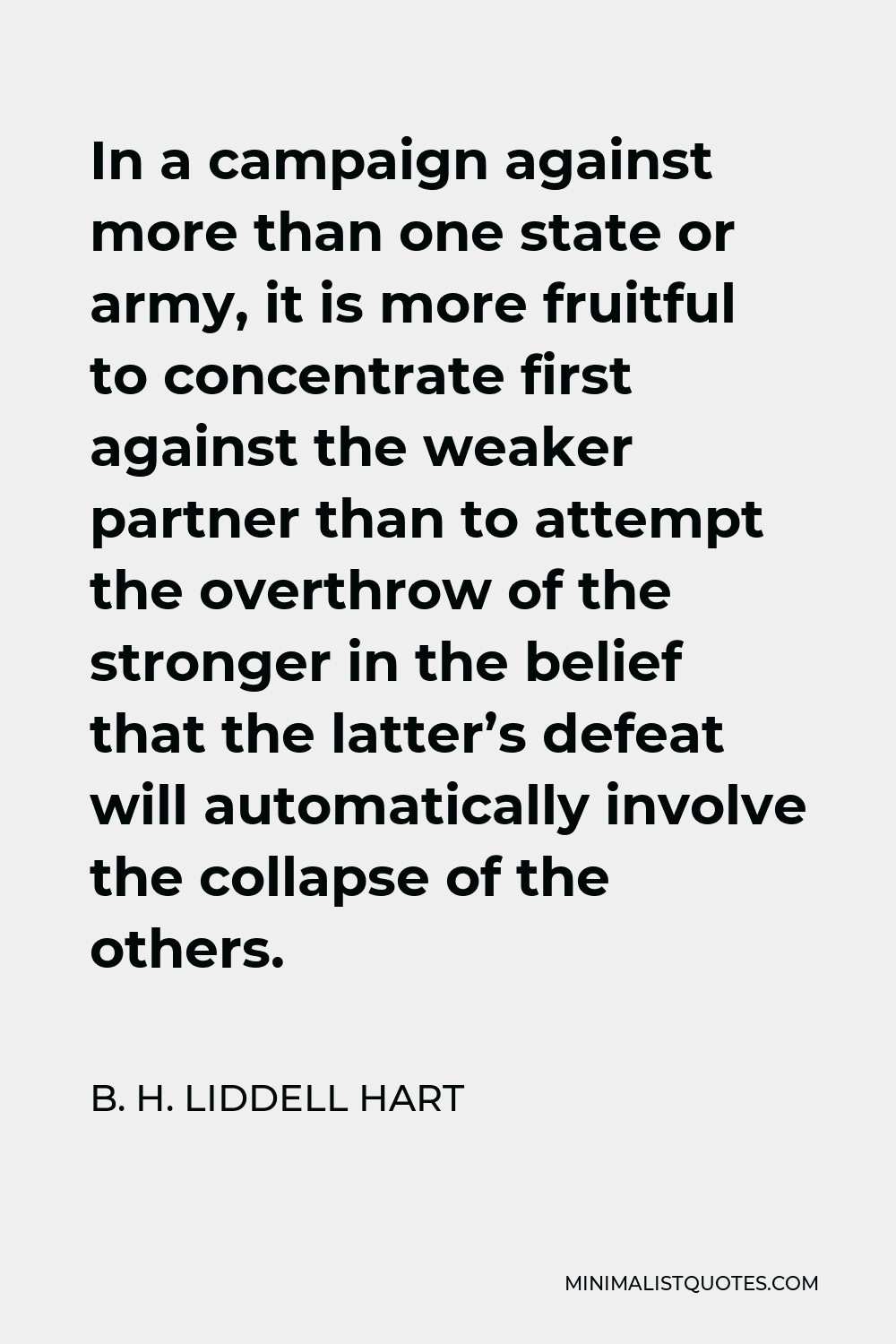As has happened so often in history, victory had bred a complacency and fostered an orthodoxy which led to defeat in the next war.
B. H. LIDDELL HARTIn a campaign against more than one state or army, it is more fruitful to concentrate first against the weaker partner than to attempt the overthrow of the stronger in the belief that the latter’s defeat will automatically involve the collapse of the others.
More B. H. Liddell Hart Quotes
-





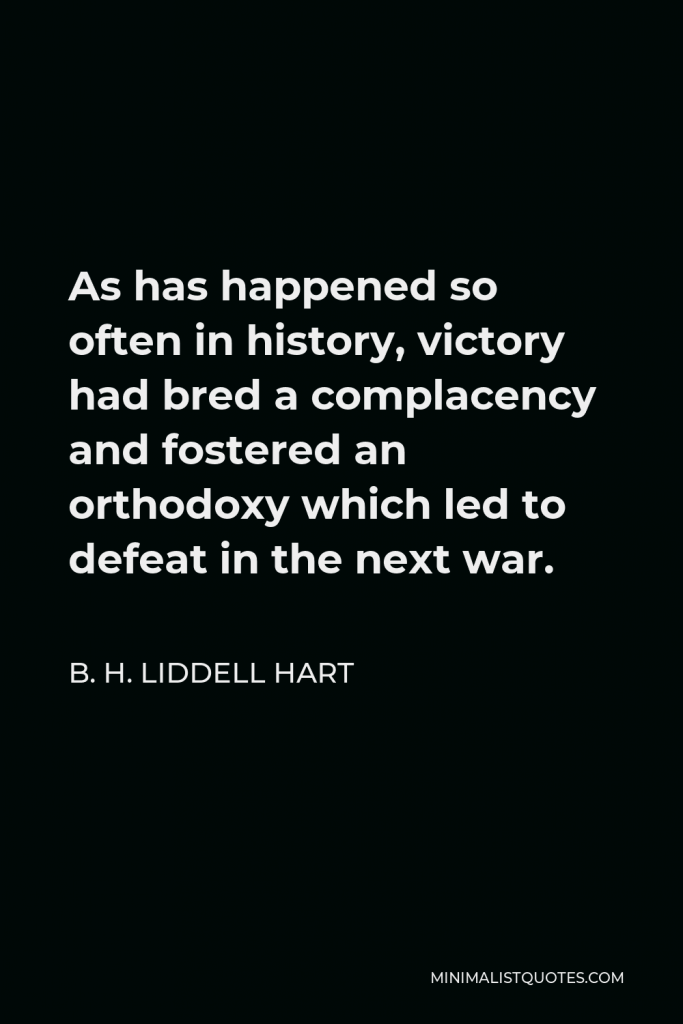

-





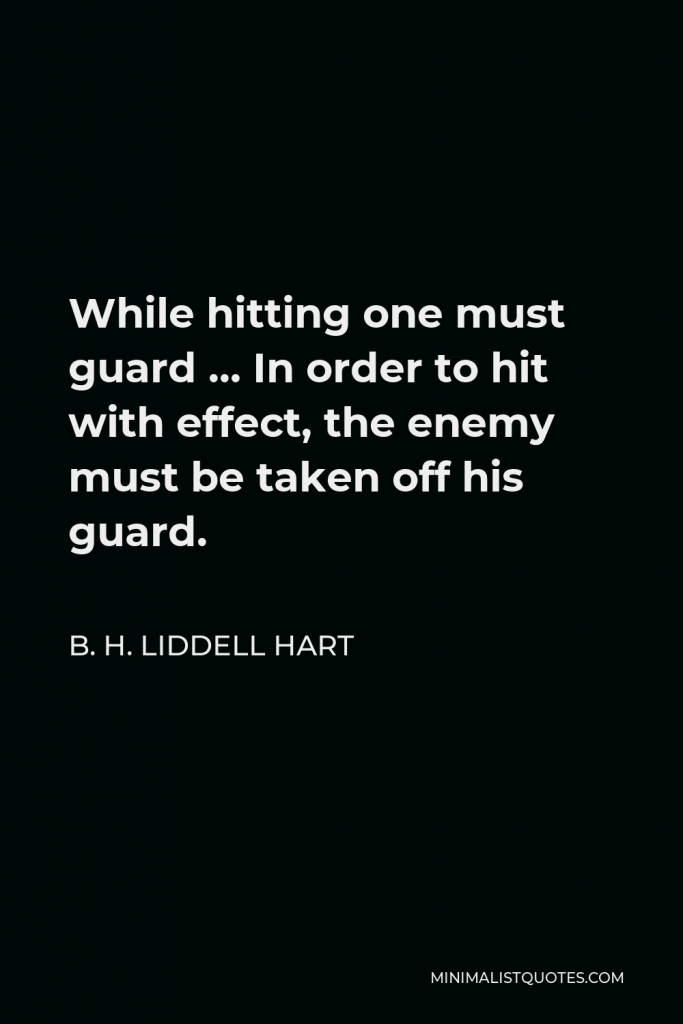

While hitting one must guard … In order to hit with effect, the enemy must be taken off his guard.
B. H. LIDDELL HART -





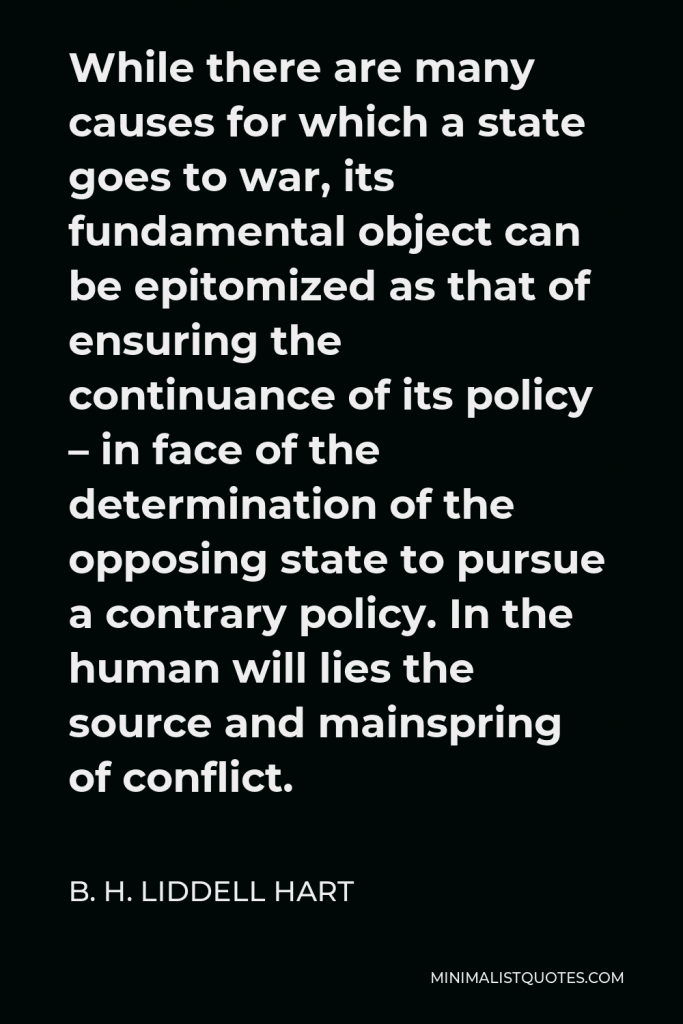

While there are many causes for which a state goes to war, its fundamental object can be epitomized as that of ensuring the continuance of its policy – in face of the determination of the opposing state to pursue a contrary policy. In the human will lies the source and mainspring of conflict.
B. H. LIDDELL HART -





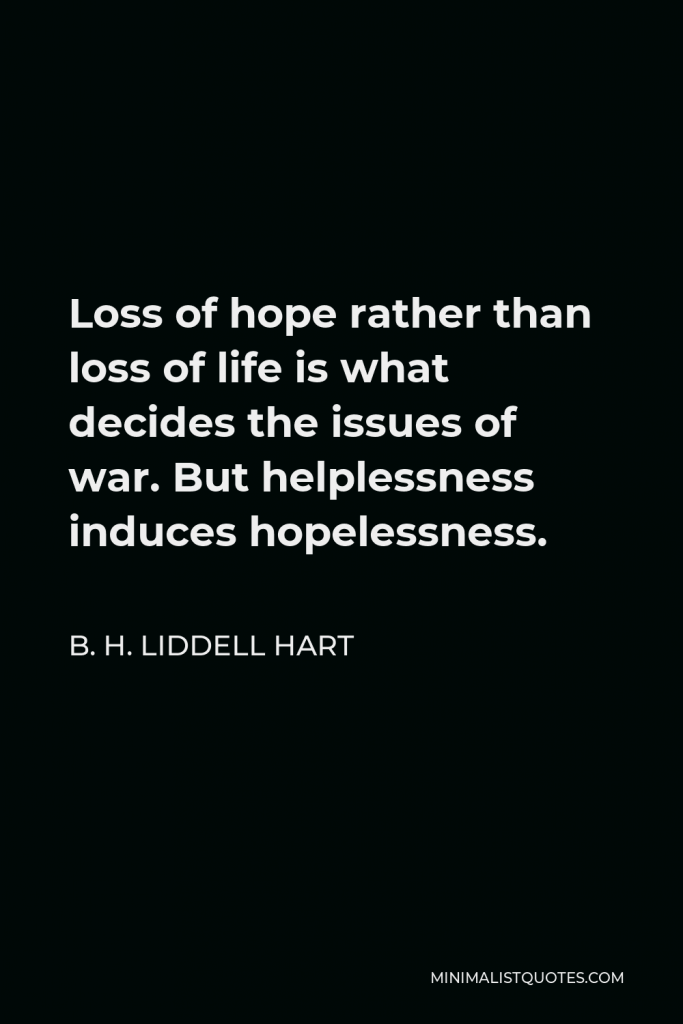

Loss of hope rather than loss of life is what decides the issues of war. But helplessness induces hopelessness.
B. H. LIDDELL HART -





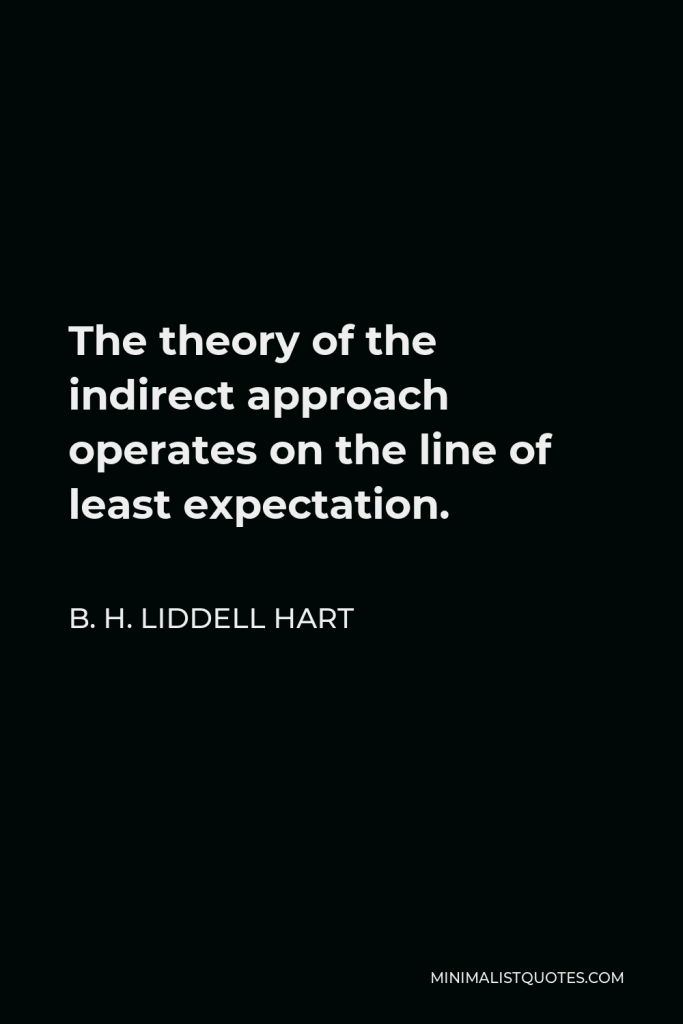

The theory of the indirect approach operates on the line of least expectation.
B. H. LIDDELL HART -





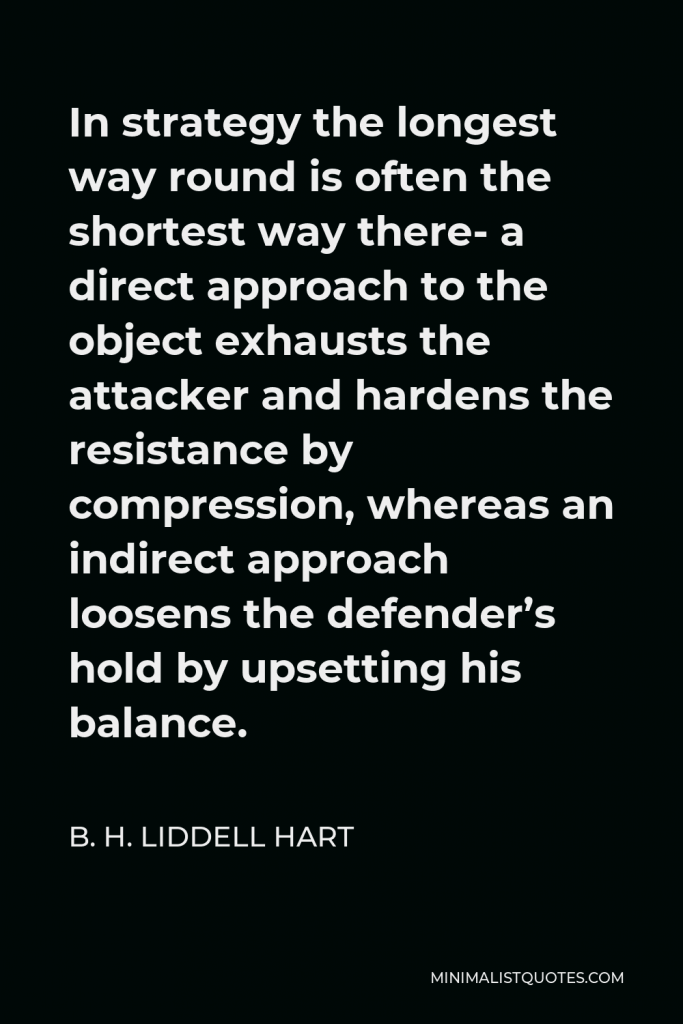

In strategy the longest way round is often the shortest way there- a direct approach to the object exhausts the attacker and hardens the resistance by compression, whereas an indirect approach loosens the defender’s hold by upsetting his balance.
B. H. LIDDELL HART -





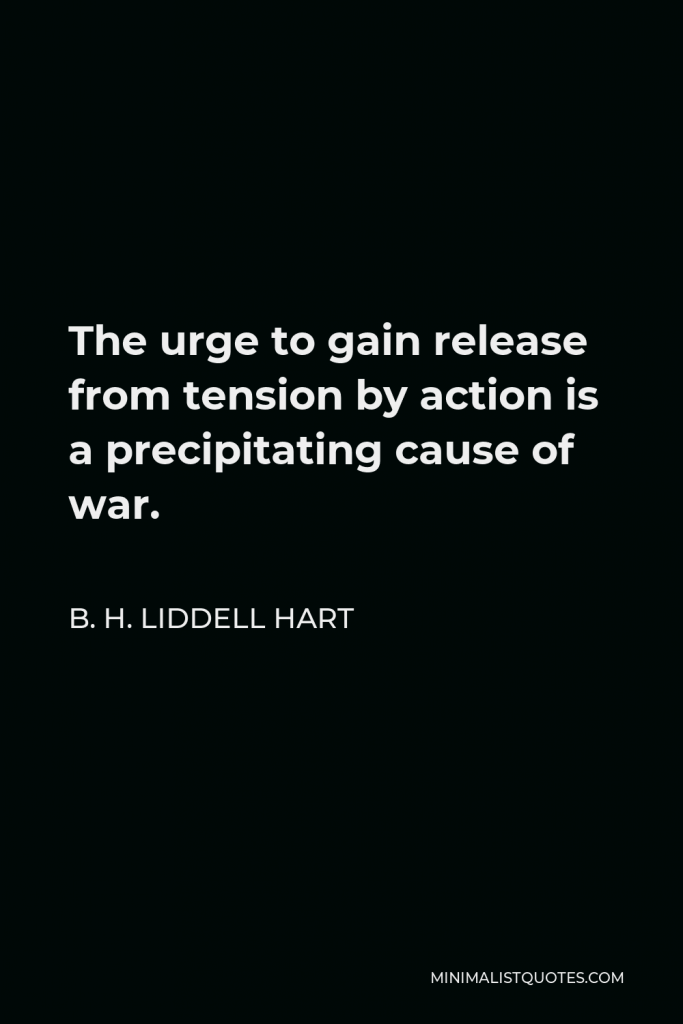

The urge to gain release from tension by action is a precipitating cause of war.
B. H. LIDDELL HART -





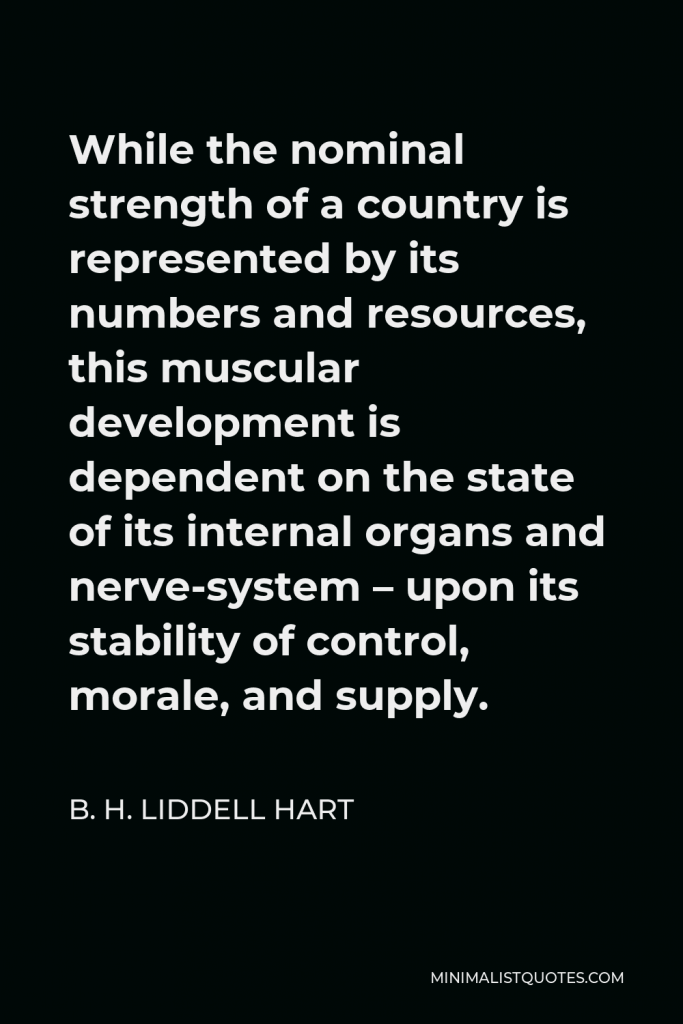

While the nominal strength of a country is represented by its numbers and resources, this muscular development is dependent on the state of its internal organs and nerve-system – upon its stability of control, morale, and supply.
B. H. LIDDELL HART -





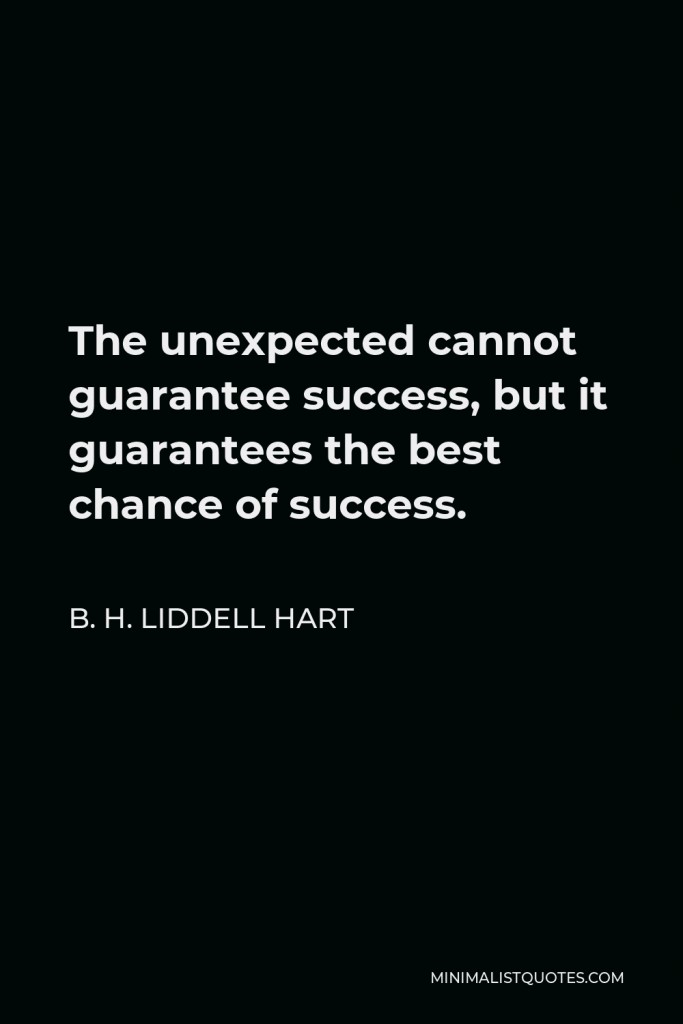

The unexpected cannot guarantee success, but it guarantees the best chance of success.
B. H. LIDDELL HART -





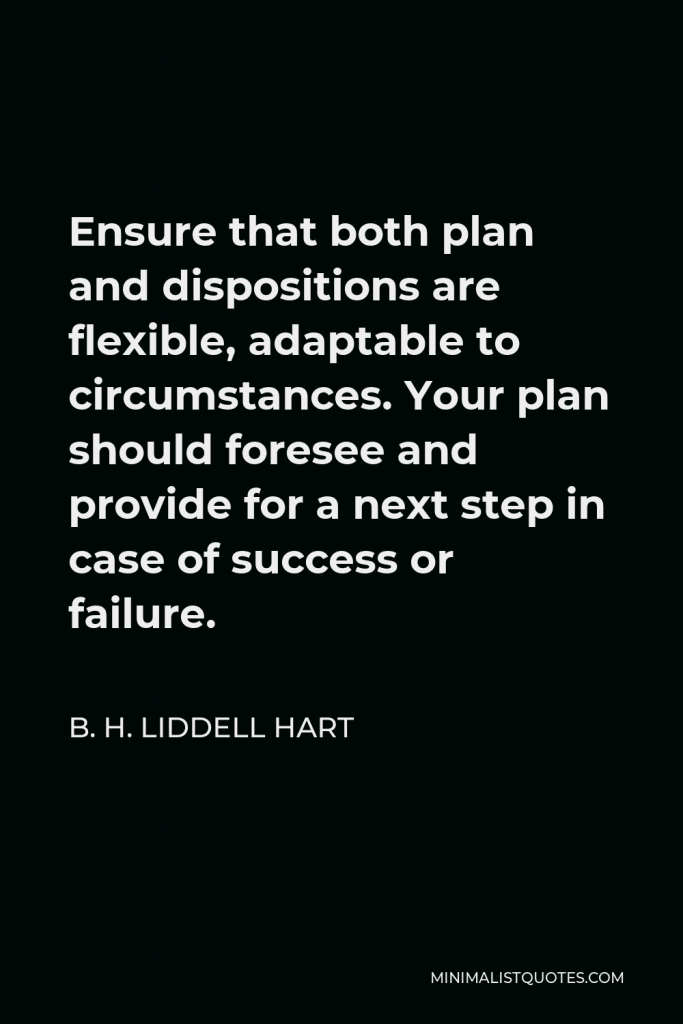

Ensure that both plan and dispositions are flexible, adaptable to circumstances. Your plan should foresee and provide for a next step in case of success or failure.
B. H. LIDDELL HART -





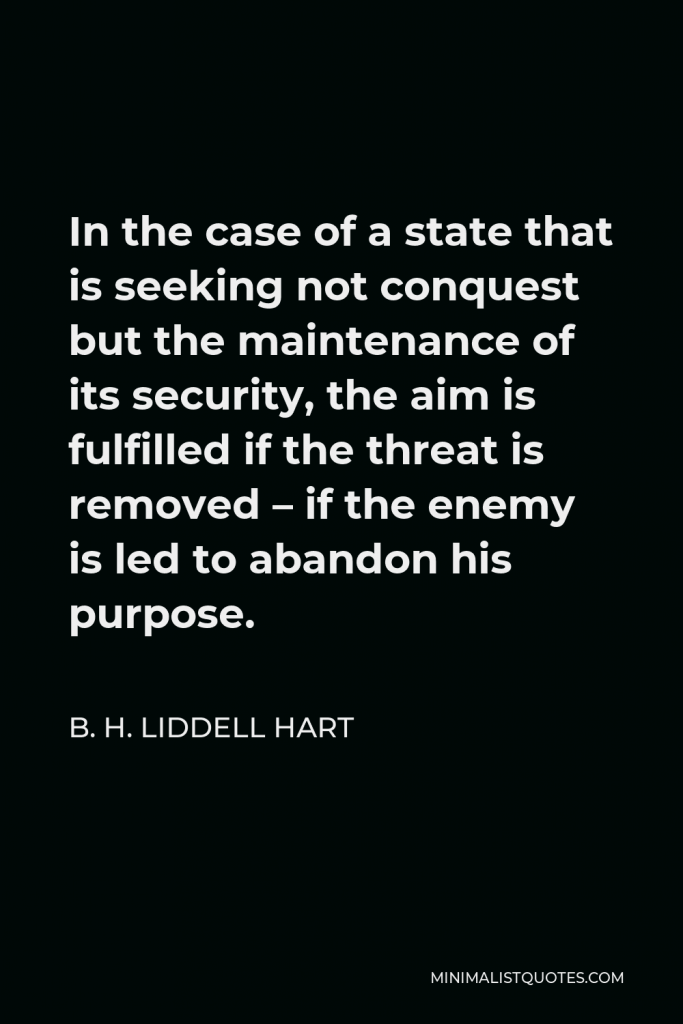

In the case of a state that is seeking not conquest but the maintenance of its security, the aim is fulfilled if the threat is removed – if the enemy is led to abandon his purpose.
B. H. LIDDELL HART -





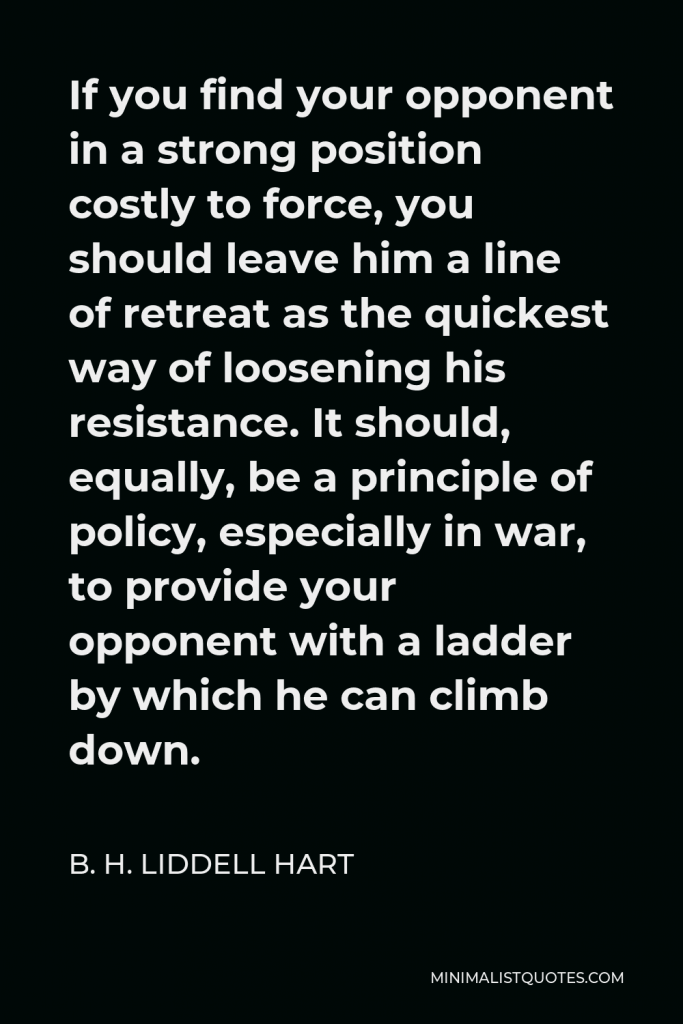

If you find your opponent in a strong position costly to force, you should leave him a line of retreat as the quickest way of loosening his resistance. It should, equally, be a principle of policy, especially in war, to provide your opponent with a ladder by which he can climb down.
B. H. LIDDELL HART -





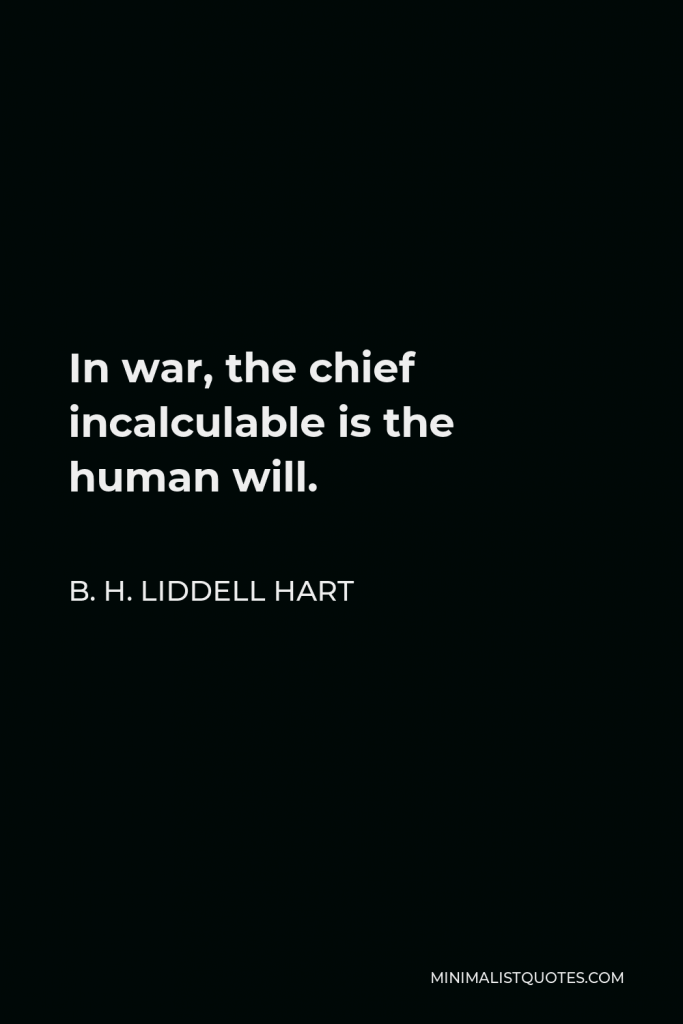

In war, the chief incalculable is the human will.
B. H. LIDDELL HART -





![B. H. Liddell Hart Quote - The higher level of grand strategy [is] that of conducting war with a far-sighted regard to the state of the peace that will follow.](https://minimalistquotes.com/wp-content/uploads/2022/10/the-higher-level-of-grand-strategy-is-that-of-cond-683x1024.jpg)

The higher level of grand strategy [is] that of conducting war with a far-sighted regard to the state of the peace that will follow.
B. H. LIDDELL HART -





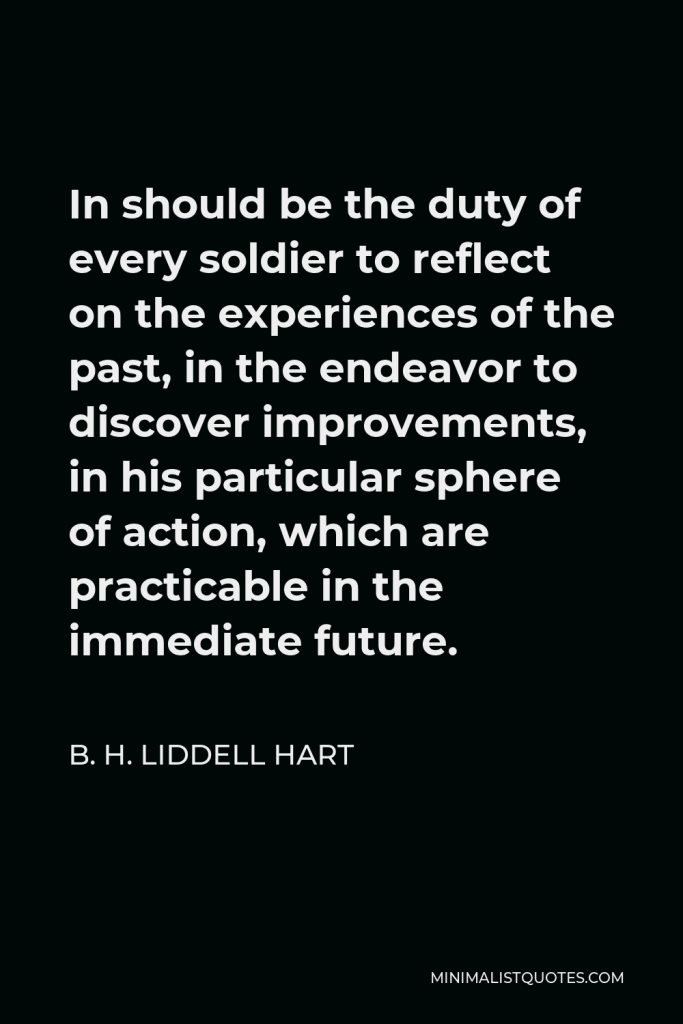

In should be the duty of every soldier to reflect on the experiences of the past, in the endeavor to discover improvements, in his particular sphere of action, which are practicable in the immediate future.
B. H. LIDDELL HART -





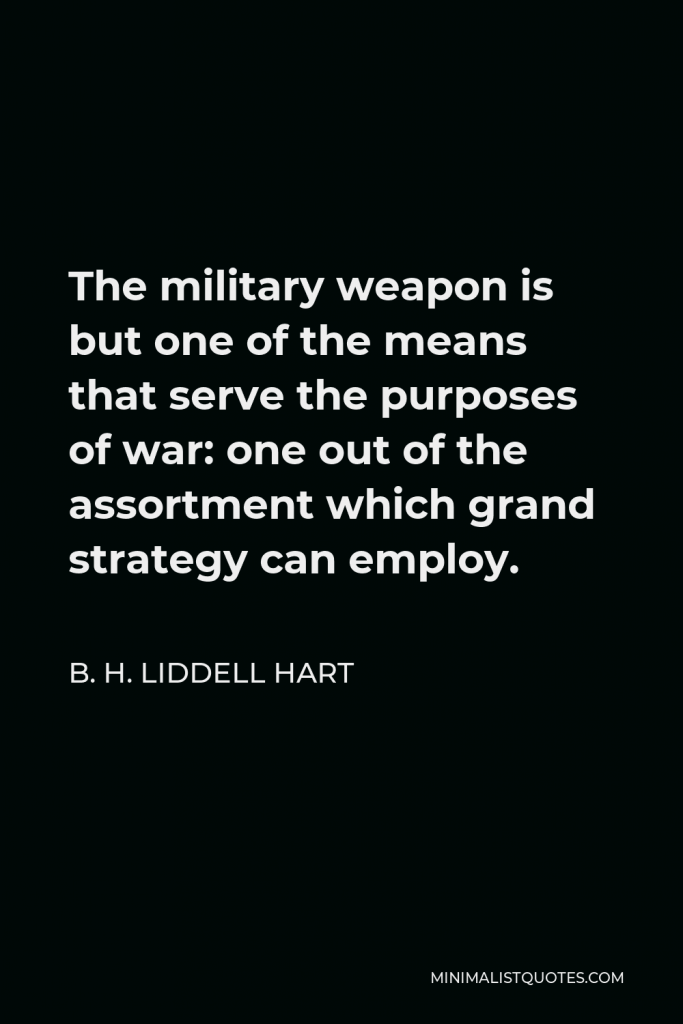

The military weapon is but one of the means that serve the purposes of war: one out of the assortment which grand strategy can employ.
B. H. LIDDELL HART
